Related Research Articles

The Hurrians were a people who inhabited the Ancient Near East during the Bronze Age. They spoke the Hurrian language, and lived throughout northern Syria, upper Mesopotamia and southeastern Anatolia.
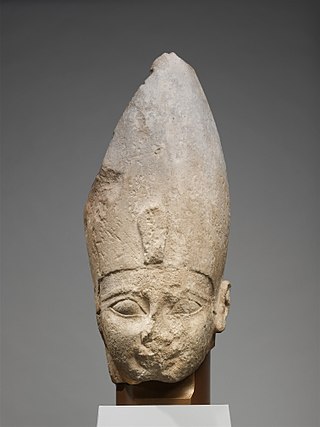
Ahmose I was a pharaoh and founder of the Eighteenth Dynasty of Egypt, classified as the first dynasty of the New Kingdom of Egypt, the era in which ancient Egypt achieved the peak of its power. He was a member of the Theban royal house, the son of pharaoh Seqenenre Tao and brother of the last pharaoh of the Seventeenth dynasty, Kamose. During the reign of his father or grandfather, Thebes rebelled against the Hyksos, the rulers of Lower Egypt. When he was seven years old, his father was killed, and he was about ten when his brother died of unknown causes after reigning only three years. Ahmose I assumed the throne after the death of his brother, and upon coronation became known as Nebpehtyre, nb-pḥtj-rꜥ "The Lord of Strength is Ra".

Usermaatre Meryamun Ramesses III was the second Pharaoh of the Twentieth Dynasty in Ancient Egypt. He is thought to have reigned from 26 March 1186 to 15 April 1155 BC and is considered to be the last great monarch of the New Kingdom to wield any substantial authority over Egypt.

Tiye was the Great Royal Wife of the Egyptian pharaoh Amenhotep III, mother of pharaoh Akhenaten and grandmother of pharaoh Tutankhamun; her parents were Yuya and Thuya. In 2010, DNA analysis confirmed her as the mummy known as "The Elder Lady" found in the tomb of Amenhotep II (KV35) in 1898.
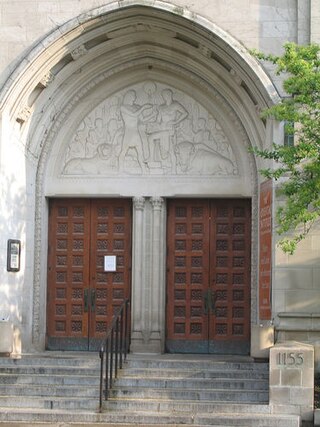
The Institute for the Study of Ancient Cultures, West Asia & North Africa, established in 1919, is the University of Chicago's interdisciplinary research center for ancient Near Eastern studies and archaeology museum. It was founded for the university by professor James Henry Breasted with funds donated by John D. Rockefeller Jr. It conducts research on ancient civilizations throughout the Near East, including at its facility, Chicago House, in Luxor, Egypt. The institute also publicly exhibits an extensive collection of artifacts related to ancient civilizations and archaeological discoveries at its on-campus building in Hyde Park, Chicago. According to anthropologist William Parkinson of the Field Museum, the ISAC's highly focused "near Eastern, or southwest Asian and Egyptian" collection is one of the finest in the world.
James Henry Breasted was an American archaeologist, Egyptologist, and historian. After completing his PhD at the University of Berlin in 1894, he joined the faculty of the University of Chicago. In 1901 he became director of the Haskell Oriental Museum at the university, where he continued to concentrate on Egypt. In 1905 Breasted was promoted to full professor, and held the first chair in Egyptology and Oriental History in the United States.

Menmaatre Ramesses XI reigned from 1107 BC to 1078 BC or 1077 BC and was the tenth and final pharaoh of the Twentieth Dynasty of Egypt and as such, was the last king of the New Kingdom period. He ruled Egypt for at least 29 years although some Egyptologists think he could have ruled for as long as 30. The latter figure would be up to 2 years beyond this king's highest known date of Year 10 of the Whm Mswt era or Year 28 of his reign. One scholar, Ad Thijs, has suggested that Ramesses XI could even have reigned as long as 33 years.
Peter FitzGerald Dorman is an epigrapher, philologist, and Egyptologist. Recently a professor of history and archaeology at the American University of Beirut (AUB), he served as the 15th President of the university from 2008 to 2015. He spent most of his career as a professor and chair in the department of Near Eastern Languages and Civilizations (NELC) of the University of Chicago, and was director of Chicago House in Luxor, the Epigraphic Survey field project of the Oriental Institute. He is presently a professor emeritus of the University of Chicago.
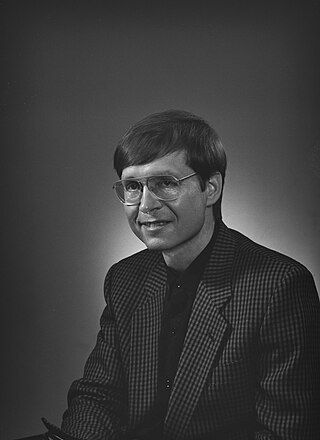
Simo Kaarlo Antero Parpola is a Finnish Assyriologist specializing in the Neo-Assyrian Empire and Professor emeritus of Assyriology at the University of Helsinki.
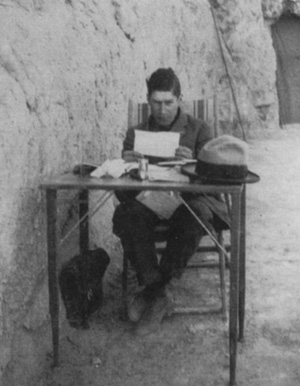
Henri "Hans" Frankfort was a Dutch Egyptologist, archaeologist and orientalist.
Richard Anthony Parker was a prominent Egyptologist and professor of Egyptology. Originally from Chicago, he attended Mt. Carmel High School with acclaimed author James T. Farrell. He received an A.B. from Dartmouth College in 1930, and a Ph.D. in Egyptology from the University of Chicago in 1938. He then went to Luxor, Egypt to work as an epigrapher with the University of Chicago's Epigraphic and Architectural Survey, studying the mortuary temple of Ramses III. When World War II necessitated a temporary halt to the project, Parker came back to Chicago to teach Egyptology at the university. In 1946, he returned to Egypt to continue his work on the epigraphic survey, and soon rose to the position of field director.

Ancient Egyptian literature was written in the Egyptian language from ancient Egypt's pharaonic period until the end of Roman domination. It represents the oldest corpus of Egyptian literature. Along with Sumerian literature, it is considered the world's earliest literature.
The Hekla 3 eruption (H-3) circa 1000 BC is considered the most severe eruption of Hekla during the Holocene. It threw about 7.3 km3 of volcanic rock into the atmosphere, placing its Volcanic Explosivity Index (VEI) at 5. This would have caused a volcanic winter, cooling temperatures in the Northern Hemisphere for several years afterwards.
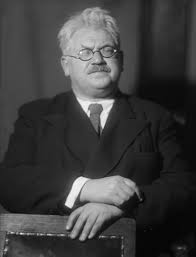
Vasily Vasilievich Struve was a Soviet orientalist from the Struve family, the founder of the Soviet scientific school of researchers on Ancient Near East history.
John Albert Wilson was an American Egyptologist who was the Andrew MacLeish Distinguished Service Professor at the University of Chicago.
Louis Vico Žabkar was an American Egyptologist who published a number of academic works and who participated in the 1960s in the UNESCO campaign to salvage the monuments threatened by the building of the Aswan Dam.

William Joseph Murnane was an American Egyptologist and author of a number of books and monographs on Ancient Egypt. He was director of the Great Hypostyle Hall Project at Luxor Karnak Temple, was a research associate and held a Dunavant Professorship in the History Department of the Institute of Egyptian Art & Archaeology at the University of Memphis. Several of his scholarly monographs are used as standard references by historians and philologists whilst more popular works, which drew on his considerable knowledge of Ancient Egyptian monuments, are used by tourists.
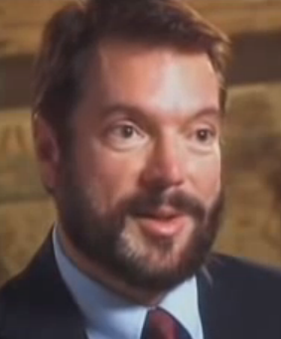
Robert Kriech Ritner was an American Egyptologist most recently at the Oriental Institute of the University of Chicago.
Janet Helen Johnson is an American Egyptologist and academic, specializing in Egyptian language and the Late Period of ancient Egypt. Since 2003, she has been Morton D. Hull Distinguished Service Professor of Egyptology at the University of Chicago. She was Director of Chicago's Oriental Institute from 1983 to 1989.
References
- 1 2 3 University of Chicago. Near Eastern Languages and Civilizations [ permanent dead link ]. Retrieved on 08-03-2009.
- 1 2 3 The Oriental Institute of the University of Chicago. (2009). WHO WAS WHO AMONG THE ROYAL MUMMIES. Retrieved on 08-03-2009.
- ↑ Edited by Emily Teeter, John A. Larson. Gold of Praise: Studies on Ancient Egypt in Honor of Edward F. Wente. The Oriental Institute of the University of Chicago.
{{cite book}}:|last=has generic name (help)